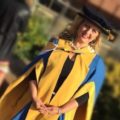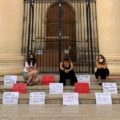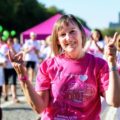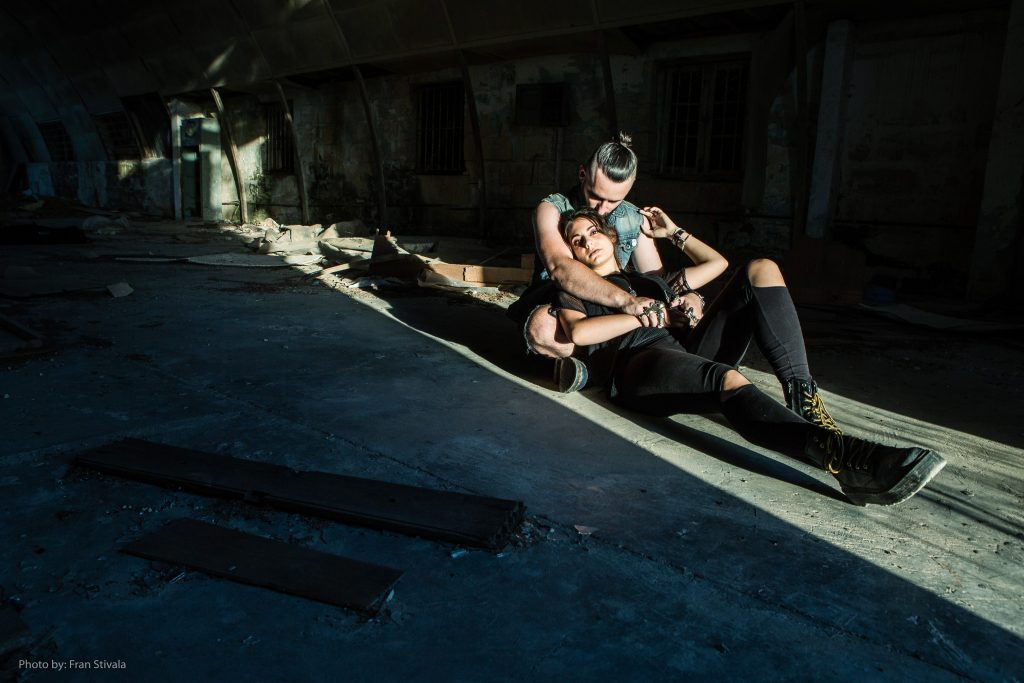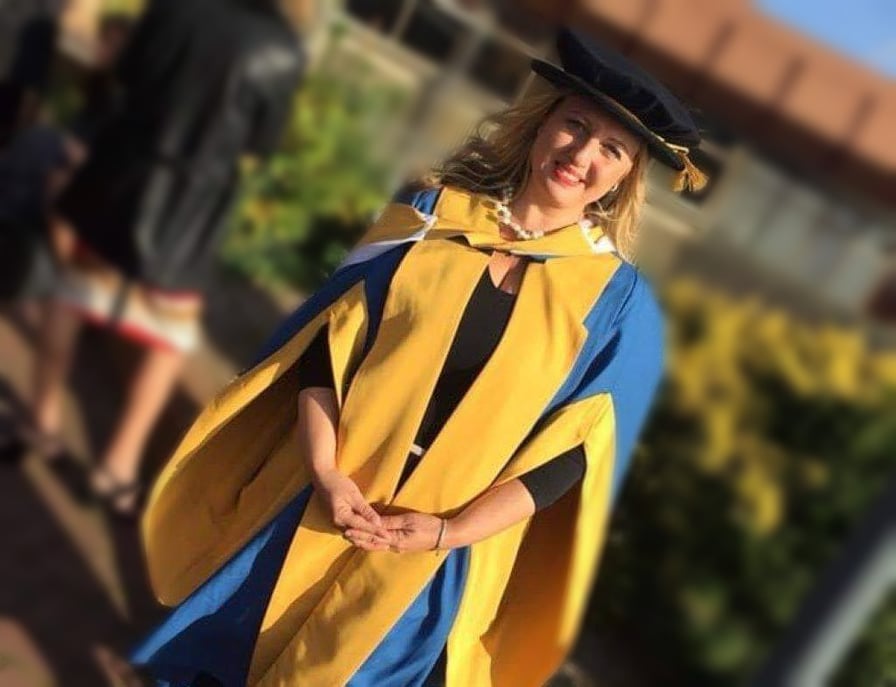
As a mature nursing student I recently had the privilege of attending a lecture delivered by Dr. Corinne Ward. I remember listening to her talk attentively and being in awe of the strength, determination and courage that this woman had and the changes that she brought forward within the Nursing Profession in Malta throughout the years. I remember feeling the need to follow in her footsteps so I can also one day bring about some of the much needed changes within our society, with the aim of making this world a better place.
Today I am proud to present to you Dr Corinne Ward, who has agreed to share with you all it takes to voice our opinions freely and with determination, and bringing about necessary changes as women.
Dr Corinne Ward is presently a lecturer at the Nursing Department in the University of Malta. She was the first Tissue Viability Specialist Nurse who led this service in Malta. She is president of the Maltese Association of Skin and Wound Care, and is the former president of the International Skin Care Nursing Group. She also represents Malta on the International Diabetic Foot Group, the teacher’s network in the European Wound Management Association and is a European member of the World Union of Wound Healing Societies. She is also an editorial member of the Journal of Wound Care. Dr Corinne Ward was a Senior Nursing Manager at Mater Dei Hospital and managed the Child and Development Assessment Unit at St Luke’s Hospital.
Dr Corinne Ward was the president of the Nurses’ Association of Malta prior to its amalgamation with the Malta Union of Midwives and Nurses (MUMN). She was the chair of the Commonwealth Nursing Federation for the European Region between 2002-2007. Her interests include: skin and wound care, advanced nursing practice and legal and professional preparation of the nurse with a particular interest on the specialist nurse’s role from a national policy perspective.
Thank you Dr Corinne Ward for accepting to participate in this interview. Can you tell us more about yourself and your achievements so far please?
Thank you for inviting me to share my nursing journey that started 30 years ago as a nursing student, however, I always knew, since I was around 4 years of age that I wanted to follow my mother Doreen and my aunt May’s footsteps to become a nurse and possibly a midwife. I was educated as St Dorothy’s convent in Sliema and then Mdina and went straight into nursing.
I come from a predominately strong female family with a matriarch at the helm the Pecorella’s. My great grandmother, my grand mother and mother and aunts were mainly nurses or midwives so I think I get the strength from them who were very strong women. As a child I would love to hear their stories of bravery and also determination.
As a young midwife, aunt May would drive the ambulance during the war and I heard of all the stories of her being on her own when helping to deliver triplets who were being born at home – how exciting!
My mother was also a feminist in her own way and ingrained in my sister and I the importance of education and independence as women. Key principles such as honesty, courage and standing up for what is right are values that stay with me forever. In the 1970’s women were just permitted to continue to work after marriage but had to stop when pregnant – my mother hid her pregnancy for 8 months to continue working as she didn’t believe that being pregnant was an illness.
These two women in my life, proved and encouraged me to reach the top of whatever I wanted in life and to be proud of what I do with honesty, hard work and passion. As you may imagine, the love I have for my profession came from the two most important women in my life. This year I lost aunty May who was 98 years young, she was still full of life up until 2 weeks before she passed away at home with her family and her animals. Her strength and joy to live and help others is something that will remain with me forever. She worked till the age of 80 as a community midwife and drove her car till we took her keys past the age of 90. Every opportunity she had she enjoyed and travelled till the end. Age was not an issue !
I started the Registered Nursing course at the Nursing School in St Luke’s hospital and I can say it was not easy. An English speaking person in nursing, at the time did not bid well so I had to work so much harder to prove that I really wanted to become a nurse. I can remember my first placement on the ward when one Nursing Officer had one look at me and told me I was in the wrong profession and may be I should think about doing medicine that was more suited for me. I think this was the first nursing challenge and I was determined to break this stereotype that existed.
However, after 6 years of nurse training, first completing a 4 year Diploma and then continuing another 2 years for my degree, I decided that I would continue specialising in Nursing. Wound care was an area that always interested me and after a short 4 month work experience with MMDNA, up until recently the only nursing community service, I realised that this area was, and still is, so much needed and nursing could take the lead.
Again, it was a challenge since nurses have a habit of eating their young. I mainly had opposition from my own profession but I also had supporters that believed in what I envisioned. The first person who encouraged me was the then first Nurse Director Ms Nikolina Farrrugia who supported my idea of going to the UK to observe and learn what other specialist nurses were doing in this field. I went to Oxford for a 6 week period and came back with more determination that this is what was needed in Malta.
In the 1990s nurses were usually the ones that took orders from the doctor and although I had no problem with that in general terms, I wanted to specialise in an area that there was no expertise in Malta. I thus joined the Medical school in Cardiff to pursue the only Masters Degree in Wound Healing and Tissue repair and I wanted to bring my knowledge to nursing and my patients.
The journey then began to start the first nurse led clinic in Malta. Although, I worked closely with the Dermatologists, podiatrist, pharmacist and other health care professionals I started leading care in a clinic that did not have a doctor present. In fact the only clinic that was available was on a Sunday. That is history today since Tissue Viablity is one of the areas of nursing that is thriving with around 10 specialist nurses, now called practice nurses in the field in both Malta and Gozo.
As mentioned earlier, I can still recall the admiration I felt for you on the very first day I heard you talk. You have been a true pioneer for the Nursing Profession in Malta by standing up for what you believed in, even during times when being a woman did not help in voicing opinions and even more so, in bringing about changes. Can you kindly share with our readers some of your past experiences with regards to setting new standards and bringing forward much needed changes?
The first thing I had fought for nurses to be given the same opportunity to study and learn – back in the 90’s nurses were not used to attending conferences and I was eager to change this.
I had attended my first international conference in 1996 and I remember that when I went to ask for Study leave as did the Doctors in my department the Manager at the time said this has to go to head office. What might sound like an exaggeration today was the reality then, but a call for applications was issued to all nurses to apply for the government to sponsor this conference. I was obviously not chosen for a variety of reasons but apart from politics, seniority was very important in those times and I was the youngest who had applied. But, although I was not chosen I was the only one who attended as the others chosen had not applied and were too late to attend. The saga of study leave continued and it was dependant on the director at the time. I thought this had to change as professions should be treated equally.
The next battle happened in 2010 when I applied for my PhD studies. I was told that if I wanted support then I best change course and go the University of Malta as PhDs should be there, nurses with a PhD were not really needed in the hospital!! I disagreed and went ahead with applying for a European grant that I won but I still needed the government to support me in some way. After lobbying members of parliament and writing to all I knew who might help there was good news and the study leave policy for all health care professionals was launched.
Another area I would like to think I helped change is the process of the Nursing Council in Malta. Following a judicial protest my colleague and I opened against the Health Minister some improvements were introduced on the election process of the Council. Much more work is needed in this area since as a regulatory body for a profession we need to have full time posts of all nurse representatives of nursing. But the seeds were sown and through my teachings I hope to instill a sense of commitment and involvement to the profession in our nursing students that goes beyond the patient, organization but to the nation.
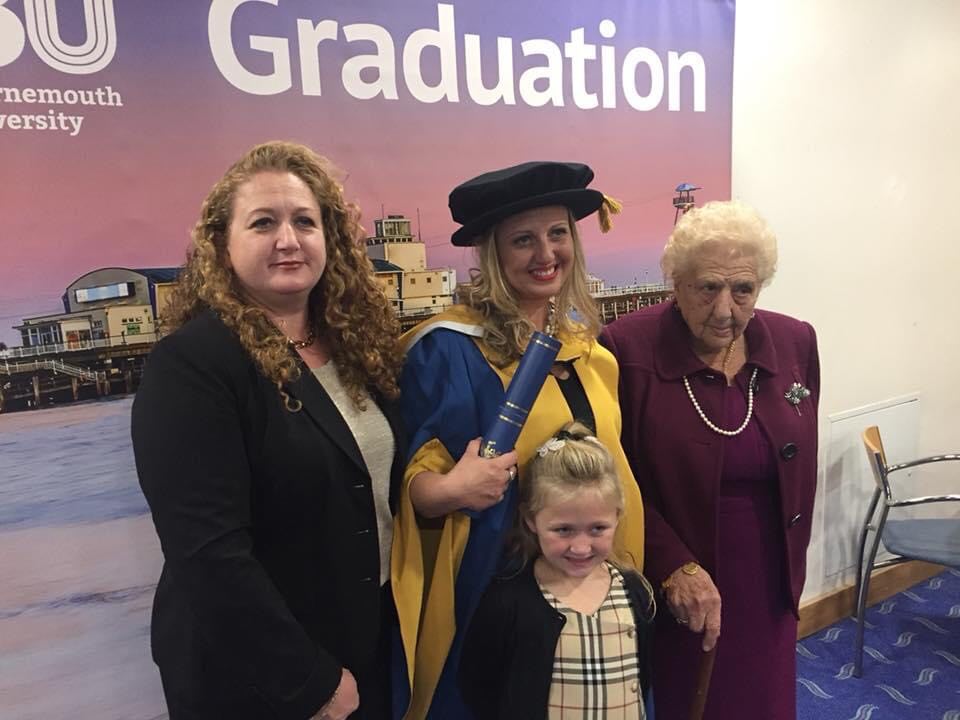
Dr Corinne Ward, in your opinion, do you think that as women we are sometimes expected to leave things as they are without pushing forward towards much needed changes, just because we are women? And if yes, what do you think is needed to bridge this gender gap?
Our profession needs to change before we expect others to change it for us or even further we as nurses need to believe in ourselves. Nursing is mainly a female profession and the expectations are that we should be angels or hand maidens. What is sad is some nurses actually continue to feel safe doing and being like this. I always hope and worked for me to be an angel for my patients, I feel privileged for patients to trust me but I am no angel in board rooms. I will say it as it is and will always do what I believe in or I will move on. I will not be a number without a voice or a yes sir ma’am person – the day this happens I would have lost my dignity. But I have learnt how to listen more and also not to react immediately.
My passion is still 100 % but rather than fight all wars I choose the battles to win. My passion is sometimes interpreted as aggression or just a character thing but my passion is what kept me in this profession always looking at ways to overcoming hurdles and improving our care to patients and their families and our profession. I believe we can do and be so much better, not only in hospital or as a nurse but as a nation – I cringe at what is happening around me and how politics and the ignorance of being red or blue blinds us to have an honest opinion. I am a person that whatever government I will work to improve because I know we can do so much better.
As a nursing student myself, I have been taught the importance of being an advocate for my patients. This implies a need for strength, determination and perseverance in my opinion. What are your thoughts on this Dr Corinne Ward, and how can one put into practice such qualities to achieve the desired outcome, not just within the Nursing Profession, but also within daily living?
I always say and believe that knowledge is power! So the more knowledgeable one is the better chance she has of making a difference. This can be taken at the bed side of the patient – the more educated and informed the nurse is the more she can make a difference to the patient. As in life, the more informed one is of her rights and responsibilities the more chance taking control of her life and being the woman she is.
I am a firm believer in working towards desired outcomes especially where some form of injustice is concerned. I also feel the need to bring about necessary changes within our society. However, I frequently find people who refuse to accept any possibility for changes to what has been the same for ages. There were times I’ve been told not to even try, whilst on other occasions I was directly told to ‘keep within my limit’ and to ‘stick to where I should belong’ even when presenting facts and evidence-based literature to prove the importance of such changes.
I am sure that there are other women out there who have experienced similar situations, which to be honest, at times make you think twice on whether to persist or to stop trying. What advice can you give to women encountering such situations please, Dr Corinne Ward?
Justice is one of the virtues I value wholeheartedly. Fairness, transparency, equality are all entwined with justice. In our culture holding these values are difficult because unfortunately people still believe that there is no justice and that today you win as you are in government and tomorrow I win. But women like me who were not involved in politics and who call a spade a spade to not make friends in high positions. I will always fight for justice and for the underdog. I feel that it is my duty to protect the ones who don’t have a voice and feel that it gives me strength to continue trying to make our world a better place.
A word of warning is that it will take a toll on you. Believing and persevering in what you think is justice might not be societies ideology and thus this will cause conflict in your world. Notwithstanding this, although not easy, I want to sleep at night being true to me and what I believe in.
I would like to thank you for your time Dr Corinne Ward. I am sure that many women will find your words very encouraging and uplifting. One final question: Bringing about change isn’t always about changing society as a whole, but can also be on an individual basis; changing oneself and taking back control of one’s life, especially in situations where one is experiencing any kind of abuse or control by a spouse, relative or otherwise.
What advice would you give to women experiencing any form of repression and lack of encouragement with regards to taking back control of their lives and finding their voice again Dr Corinne Ward?
This is a difficult one because all women have inner strengths that are different. However, from experience I can say that when I have hit rock bottom and thought I had no one in the world someone always came to my rescue, especially when I found the courage to ask for help. So, I would say be brave in seeking help. All of us will need it in our lives one way or another, sooner or later so pluck all your courage and ask for help – this is not a weakness but a great strength.
The University of Malta is currently offering 9 undergraduate courses in relation to the Nursing Profession. These courses include the Bachelor of Science (Honours) in Nursing on a 3 year Full Time basis, as well as on a 5 year Part Time basis, which gives students with other commitments the possibility of becoming registered nurses. For more information please visit https://www.um.edu.mt/courses/keyword/Undergraduate/Nursing
Is there an amazing woman you admire and who you think is very inspirational? Share your experience with us…contact us or email us at [email protected]
Claire Galea is a mum of three currently reading for a Degree in Nursing at the Faculty of Health Sciences, University of Malta, as a mature student. She is keen about holistic patient-centered care as well as public education about health-related subjects, which she frequently writes about on Wham as a Content Writer and Website Editor.
Claire is also passionate about spreading awareness on the negative effects that domestic abuse leaves on its victims’ mental, emotional, social and physical wellbeing. She is the author of two downloadable ebooks, namely Heal Your Life Forever and 5 Simple Steps To Creating The Life Of Your Dreams.
Click here to check out Claire’s full bio as well as a list of all her Wham published articles

